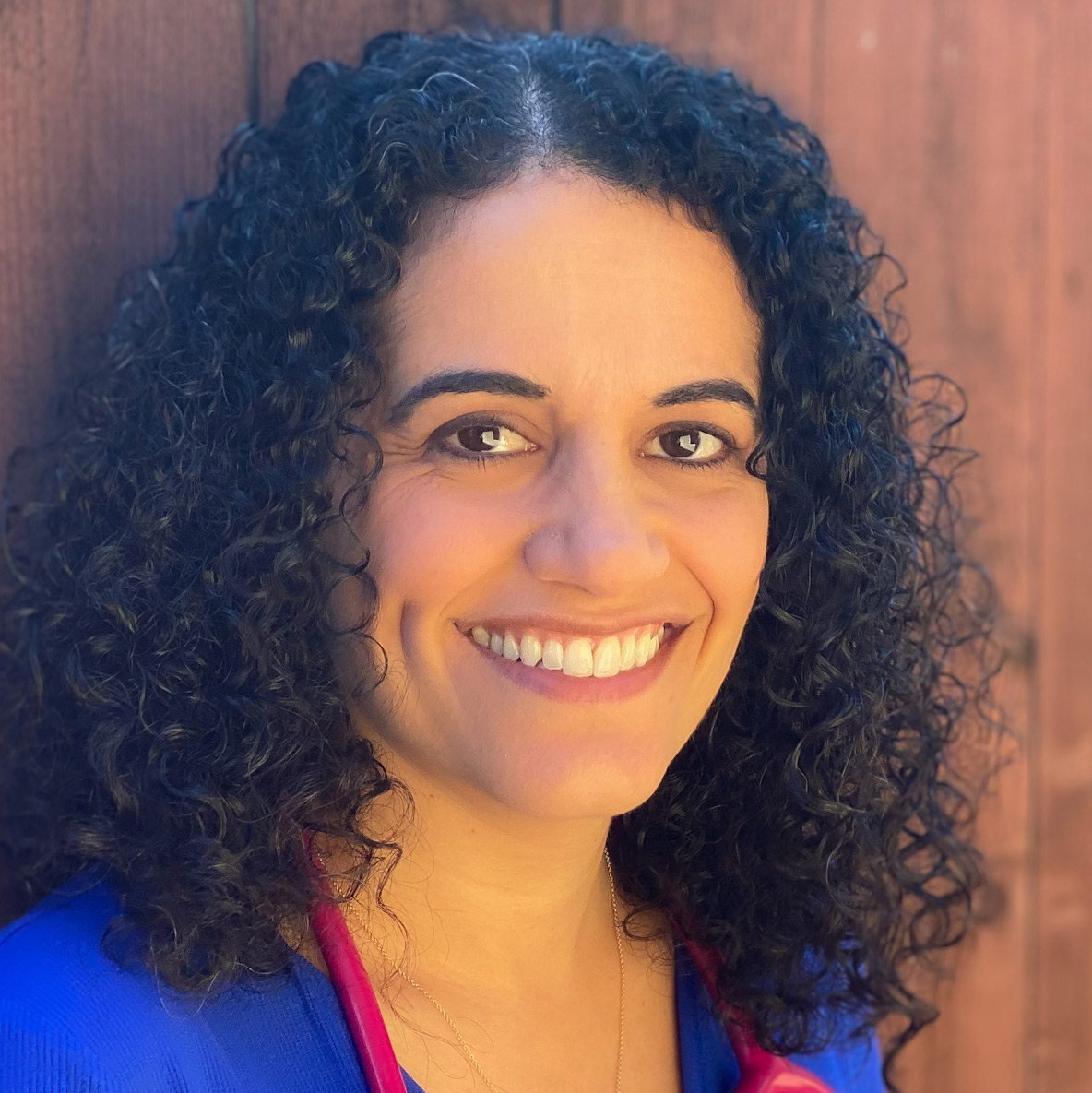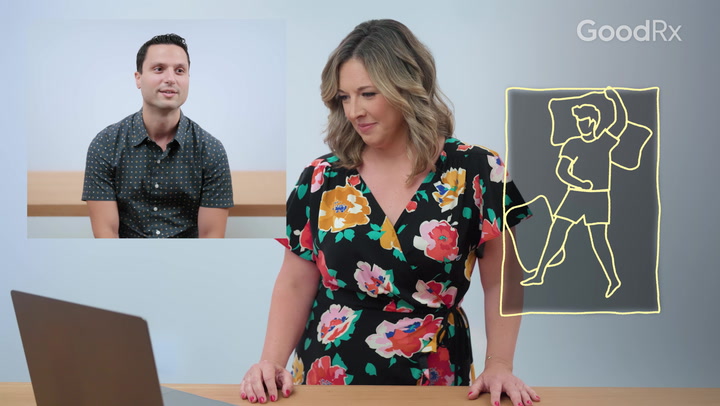
Can CBD Help You Sleep Better?
Key takeaways:
Cannabidiol (CBD) is a chemical that comes from the cannabis plant. It’s available in many different products, like oils, tinctures, and ointments.
There’s some evidence that CBD might be able to help with sleep problems. But it might only help sleep when a person also has other health conditions — like anxiety or chronic pain. Treating insomnia alone with CBD doesn’t seem to help unless it’s combined with other cannabinoids (such as THC).
For most people, CBD is generally considered safe when used in the short term.
If you’re interested in trying CBD for sleep, talk with your healthcare professional. They can help you choose a safe and reliable product, and check for any drug interactions, so you can see whether CBD works for your sleep problems.
Table of contents

You’ve probably noticed that, recently, cannabidiol (CBD) is everywhere. Since effectively becoming legal in 2018 in the U.S., CBD is all over the place, from food and edibles to oils, creams, and even pet products. It’s reported to have many benefits, like lowered anxiety, reduced pain, and better sleep.
And if you’re one of the millions of U.S. adults who have trouble getting enough sleep at night, you may be curious about whether CBD could work for you.
So, does CBD help you sleep better? Unfortunately, we just don’t know for sure yet.
Wise Use CBD for Rest and Sleep
CBD/CBN + supplement capsules. Clinician-led guidance always included. Use code TRYEO and get 10% off.


Must be 21 years or older to purchase. Cannabis is not recommended for women who are pregnant or nursing or those who are suffering from bipolar disorder or schizophrenia. Cannabis use may increase risk of falls. Always consult with your doctor before beginning any new medical treatment.
What is CBD?
CBD is a substance that comes from cannabis plants. Unlike its well-known counterpart tetrahydrocannabinol (THC), which is another chemical in cannabis, CBD doesn’t have any intoxicating effects. In other words, CBD won’t make you high.
Lately, people have been interested in the possible health benefits of CBD. Some products with CBD claim they can help with many different things, including sleep problems.
But the truth is: Except for seizure disorders, we don’t really know for sure how well CBD works for most things, including sleep. Scientists just haven’t done enough research yet. So, while it might be helpful for some people, we need to learn more before we can be sure.
What does the science say about CBD and sleep?
When it comes to CBD and sleep, the science isn’t entirely clear. That’s because some studies use CBD mixed with THC instead of CBD alone. And only a few studies focus on people with sleep problems as their only concern. Cannabinoids seem to help improve sleep in studies of people with other health conditions, such as chronic pain and multiple sclerosis. But CBD might affect your sleep differently if you have other health concerns as well.
So let’s break it down.
CBD with THC improves sleep
When CBD is combined with THC, studies show that it can help treat insomnia in people without any other medical conditions. When people with moderate-to-severe insomnia used a mixture of CBD mixed with THC and cannabinol (CBN), it helped their insomnia. They fell asleep faster, slept longer, and reported better sleep quality. But can CBD alone help improve your sleep?
Read more like this
Explore these related articles, suggested for readers like you.
What about CBD alone?
Here’s where things get tricky. Some clinical studies show that CBD does help improve sleep. Cannabinoids seem to help people fall asleep faster and stay asleep through the night. But many of the people in these studies also had other health problems, like multiple sclerosis, post-traumatic stress disorder (PTSD), or chronic pain. So it’s not clear if CBD helped their sleep directly — or if it helped because it eased symptoms from their other health conditions — like anxiety or pain.
When researchers focus on CBD alone in healthy people without other health conditions, the results are mixed. Healthy college students without sleep problems who took CBD daily reported that their sleep quality improved. But for people with moderate to severe insomnia — and no other health conditions — taking CBD daily didn’t help them sleep better. Taking CBD didn’t help them fall asleep faster, sleep longer, or improve sleep quality.
It’s not clear why these studies showed different results. It might be because they used different doses. The college students took 50 mg orally while those with insomnia took 150 mg under the tongue. They also measured sleep quality differently. The study in college students used questionnaires to see if they felt their sleep quality had improved. The researchers studying CBD and insomnia had people sleep in a sleep lab to measure exactly how their sleep changed. In both groups, people reported an increase in their sense of well-being. So it’s possible that the college students had a boost in well-being that made them feel well-rested, but CBD didn’t actually affect their sleep.
More research is needed to understand the link between CBD and sleep. But at this time, there’s no evidence to show that CBD alone is helpful for improving sleep in people with insomnia without a clear underlying cause.
How might CBD work for sleep?
It’s not clear. It’s possible that CBD might affect your sleep through something called the endocannabinoid system (ECS). The ECS is a network in your body that has many jobs, including helping to control pain, emotions, and sleep patterns. It also involves a part of your brain called the hypothalamus, which helps you fall asleep and wake up.
In the ECS, there are receptors that can interact with CBD. When CBD connects with these receptors, it might affect your sleep pattern. This could potentially help your body stick to a more regular sleep cycle — and make it easier for you to fall asleep at night and wake up in the morning.
What is the best form of CBD for sleep, and when should you take it?
It’s hard to say. There’s not enough evidence yet to say for sure which CBD products are best for sleep. Your healthcare professional may be able to make some suggestions for you. Otherwise, some trial and error may be required to help you figure out which product, and what dose, works best for you.
The general recommendation is to start with a low dose and slowly increase it to find what works best. But keep in mind: With CBD, low doses can sometimes be stimulating, making you feel more awake.
CBD comes in many different forms. Options include:
Products for smoking or vaping
Oils or tinctures
Edibles, gummies, and capsules
Beverages and teas
Creams and ointments
Smoking or vaping CBD usually works the fastest. People often feel an effect within minutes. But smoking and vaping can be hard on your lungs. And effects from these types of products also don’t tend to last as long.
CBD oil and edibles — like gummies, lozenges, or capsules — can take a bit longer to work. It may take 1 to 2 hours before you notice any effect. On the other hand, the results might last longer with these types of products.
It’s important to note that smoking or vaping can have health risks. Oils and creams can also cause a rash in some people. Also, they typically don’t absorb into the bloodstream, so they’re not likely to help with sleep. This is why it’s important to first check in with your healthcare professional before you take CBD. That way, you can understand the pros and cons of different ways of taking CBD (more on the risks below).
If you’re planning to try CBD for sleep, it’s also important to choose a high-quality product for best results. This means:
Buying CBD products from a licensed dispensary or a brand with a good reputation
Choosing organic CBD products that are made in the U.S.
Using products that have been tested by a third-party lab to make sure they’re safe, pure, and have the right dose of CBD
Staying away from CBD products with additional additives
Are there risks to using CBD for sleep?
For most people, using CBD for sleep seems to be safe — especially when used for a short period of time.
But there are a few potential risks to keep in mind:
Medication interactions: CBD can cause problems with other medications, especially ones that are processed in your liver. These include statins, nonsteroidal anti-inflammatory drugs (NSAIDs), some blood pressure medications and blood thinners, and more. CBD can affect how your liver handles these medications, or how well the medications work in your body.
Unreliable dosing: Because CBD isn’t regulated by the FDA, it can be hard to know how much CBD you’re actually getting from a product. In other words, you might be getting more or less CBD than you intend. In a 2017 study of 84 different products, only 1 in 4 were accurately labeled for CBD content.
THC exposure: Some CBD products contain THC, another chemical that comes from the cannabis plant — even though they’re technically not supposed to. THC can have unwanted effects, like making you feel high. It can also potentially disrupt your sleep.
Liver damage and problems with the male reproductive system: There’s some evidence that CBD use may be associated with liver damage. Damage to the male reproductive system has also been reported in some animal studies.
Remember: If you’re thinking about trying CBD — or any new medication or supplement — it’s always a good idea to check in with your healthcare professional. They can help you understand whether CBD is safe for you to try. And they can help you find a brand with a good reputation.
An experienced healthcare professional can also help you avoid potential pitfalls. According to Dr. Reyan Schroter, a pharmacist at the cannabis dispensary Curaleaf, people who use CBD for sleep without a consultation “often find it ineffective or even stimulating.” In other words, the CBD could end up not working at all. Or it could make you even more awake.
According to Dr. Schroter, “more positive sleep outcomes are frequently reported” when CBD is combined with THC or CBN (cannabinol, which is another cannabinoid) — or with melatonin.
Can CBD cause side effects?
Yes. CBD can sometimes cause side effects, including:
Diarrhea
Nausea
Drowsiness
Low appetite
Agitation
Irritability
Starting with a low dose of CBD and slowly increasing it can help you manage and prevent most side effects. The formulation of the product you’re taking can also contribute to side effects. So trying a different dosage form may work for you.
Is it safe to use CBD while pregnant or breastfeeding?
No. If you’re pregnant or breastfeeding, you should definitely stay away from CBD.
It’s not clear whether CBD is harmful to babies and children. More research is needed. But so far, there’s some evidence that CBD could cause problems during pregnancy or early childhood.
Since CBD isn’t regulated by the FDA, it’s also possible that using CBD could expose your baby to THC, as well as other harmful substances like pesticides, heavy metals, and germs.
Are there other natural remedies for sleep?
Absolutely! There are many things you can do to sleep better at night.
Here are some ideas to try:
Practice good sleep hygiene. This means making changes to your daily routine and home environment that can help you sleep well at night.
Try meditation. Meditation can have many mental and physical health benefits, including helping you to sleep better at night.
Explore cognitive behavioral therapy for insomnia (CBT-I). CBT-I is a proven treatment for insomnia. It’s a type of therapy that teaches you to think about sleep in a more positive way. And it gives you tools to manage your sleep problems directly.
Try melatonin. Melatonin is a chemical that your body releases at bedtime. Melatonin supplements may be able to help you sleep better, especially if your insomnia is caused by jet lag or working a night shift.
In some cases, over-the-counter (OTC) sleep aids or prescription medication can also help. Talk with your healthcare professional about whether these options are right for you.
The bottom line
CBD products claim to help with many different things, including sleep problems. And though there’s some evidence that CBD might be helpful for sleep, it seems it might be more helpful for people with underlying health issues causing their poor sleep. If you have insomnia but no other health conditions, then the evidence is less clear.
The good news: For most people, CBD is generally considered safe to try, including for sleep. If you’re interested in CBD, talk with your healthcare professional. They can help you choose a product that’s safe and reliable. Then you can see if CBD helps you get a good night’s rest.
Why trust our experts?



References
Bonn-Miller, M. O., et al. (2017). Labeling accuracy of cannabidiol extracts sold online. Journal of the American Medical Association.
Centers for Disease Control and Prevention. (2022). CBD: What you need to know.
Centers for Disease Control and Prevention. (2022). Sleep and sleep disorders.
Kisiolek, J. N., et al. (2023). Eight weeks of daily cannabidiol supplementation improves sleep quality and immune cell cytotoxicity. Nutrients.
MedlinePlus. (2023). Cannabidiol (CBD).
MedlinePlus. (2023). Hypothalamus.
Narayan, A. J., et al. (2024). Cannabidiol for moderate-severe insomnia: A randomized controlled pilot trial of 150 mg of nightly dosing. Journal of Clinical Sleep Medicine.
National Center for Complementary and Integrative Health. (2019). Cannabis (marijuana) and cannabinoids: What you need to know.
Oberbarnscheidt, T., et al. (2020). The impact of cannabidiol on psychiatric and medical conditions. Journal of Clinical Medicine Research.
Ranum, R. M., et al. (2023). Use of cannabidiol in the management of insomnia: A systematic review. Cannabis and Cannabinoid Research.
Ried, K., et al. (2022). Medicinal cannabis improves sleep in adults with insomnia: A randomised double-blind placebo-controlled crossover study. Journal of Sleep Research.
Shannon, S., et al. (2019). Cannabidiol in anxiety and sleep: A large case series. The Permanente Journal.
Substance Abuse and Mental Health Services Administration. (2023). Cannabidiol (CBD) – Potential harms, side effects, and unknowns.
U.S. Food and Drug Administration. (2019). What you should know about using cannabis, including CBD, when pregnant or breastfeeding.
U.S. Food and Drug Administration. (2020). What you need to know (and what we’re working to find out) about products containing cannabis or cannabis-derived compounds, including CBD.
Walsh, J. H., et al. (2021). Treating insomnia symptoms with medicinal cannabis: A randomized, crossover trial of the efficacy of a cannabinoid medicine compared with placebo. Sleep.
Wenger, T., et al. (2002). The role of endocannabinoids in the hypothalamic regulation of visceral function. Prostaglandins, Leukotrienes, and Essential Fatty Acids.
World Health Organization. (2017). Drugs (psychoactive): Cannabidiol (compound of cannabis).




























